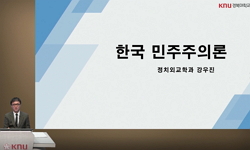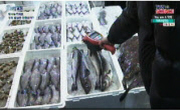Understanding the relationship between individuals’ cognitive abilities and selective attention has implications for both general cognitive mechanisms and characteristics of special populations. Bleckley et al. (2003, 2015) suggested that individual...
http://chineseinput.net/에서 pinyin(병음)방식으로 중국어를 변환할 수 있습니다.
변환된 중국어를 복사하여 사용하시면 됩니다.
- 中文 을 입력하시려면 zhongwen을 입력하시고 space를누르시면됩니다.
- 北京 을 입력하시려면 beijing을 입력하시고 space를 누르시면 됩니다.

인지적 통제 능력의 개인차와 선택적 주의: 대상효과와 위치효과를 중심으로 = Individual differences in cognitive control and selective attention: object-based attention and location-based attention
한글로보기https://www.riss.kr/link?id=A103635788
- 저자
- 발행기관
- 학술지명
- 권호사항
-
발행연도
2016
-
작성언어
Korean
-
주제어
cognitive control ; object effect ; location effect ; attention ; 인지적 통제 ; 대상효과 ; 위치효과 ; 주의
-
등재정보
KCI등재
-
자료형태
학술저널
- 발행기관 URL
-
수록면
309-326(18쪽)
-
KCI 피인용횟수
0
- DOI식별코드
- 제공처
- 소장기관
-
0
상세조회 -
0
다운로드
부가정보
다국어 초록 (Multilingual Abstract)
Understanding the relationship between individuals’ cognitive abilities and selective attention has implications for both general cognitive mechanisms and characteristics of special populations. Bleckley et al. (2003, 2015) suggested that individuals with high cognitive control ability allocate attention effectively based on an object (i.e., object-based facilitation effect), whereas individuals with low cognitive control ability allocate attention broadly based on the location of the object. If those with high cognitive control ability use object-based attention for effective information processing, they should not allocate attention to an object, if selection based on the object is not effective. The present study examined how individuals with high cognitive ability and with low cognitive ability allocate their attention when the selection based on an object is not effective. We also attempted to measure location and object effects more accurately by moving a cued object to another location. The results revealed that when participants were informed that a target was more likely to occur at the cued location, only those with high cognitive ability showed an inhibition effect at the opposite end of the cued object (separated from its original location). In contrast, the magnitude of location effect (separated from the object) did not differ between the high and low control groups. Our findings not only support the view that object effect is related with cognitive control but also suggest that the direction of object effect varies across tasks.
국문 초록 (Abstract)
개인의 인지적 특성과 선택적 주의의 관계를 이해하는 것은 기본적인 인지처리 과정의 이해뿐만 아니라 병리학적으로도 의의가 있다. Bleckley 등(2003, 2015)은 인지적 통제능력이 높은 사람은 ...
개인의 인지적 특성과 선택적 주의의 관계를 이해하는 것은 기본적인 인지처리 과정의 이해뿐만 아니라 병리학적으로도 의의가 있다. Bleckley 등(2003, 2015)은 인지적 통제능력이 높은 사람은 효율적 선택을 위해 대상을 중심으로 주의를 할당하는 반면(대상에 근거한 촉진 효과), 인지적 통제능력이 낮은 사람은 위치를 중심으로 넓게 주의를 할당한다고 주장하였다. 만약, 인지적 통제능력이 높은 사람에게서 관찰되는 대상에 근거한 촉진효과가 개인의 고정된 주의할당 방식이 아니라 효율성의 산물이라면, 대상에 근거한 선택이 효율적이지 않을 경우 촉진효과가 사라져야 할 것이다. 본 연구는 움직이는 대상 패러다임을 사용하여 위치효과와 대상효과를 보다 정확히 측정하였으며, 대상에 기반한 선택이 효율적이지 않은 상황에서 인지적 통제능력의 상위집단과 하위집단 간에 주의할당 방식의 차이가 나타나는 지를 살펴보았다. 실험 결과, 단서가 주어진 ‘위치’에 목표자극이 제시될 확률이 높다는 사전 정보를 주었을 때, 상위집단은, 하위집단과 달리, (위치와 분리된) 대상으로의 주의 할당을 억제하는 경향을 보였다. 반면에, 집단 간 (대상과 분리된) 위치효과의 차이는 유의하지 않았다. 이러한 결과는 대상효과가 개인의 인지적 통제능력과 관련이 있다는 기존의 이론을 지지할 뿐만 아니라 대상효과의 방향이 과제에 따라 유동적임을 시사한다.
참고문헌 (Reference)
1 권미경, "움직이는 대상에서의 주의의 대상 효과와 군집화 효과" 한국인지및생물심리학회 14 (14): 8-, 2002
2 강해인, "시각작업기억 처리 단계에 따른 주의 자원 활용 특성" 한국인지및생물심리학회 23 (23): 487-504, 2011
3 민윤기, "대상- 및 공간-기반 주의가 작업기억에 미치는 영향" 한국인지과학회 19 (19): 125-142, 2008
4 Bleckley, M. K., "Working memory capacity accounts for the ability to switch between object-based and location-based allocation of visual attention" 43 : 379-388, 2015
5 Baddeley, A., "Working memory : Looking back and looking forward" 2003 (2003): 829-839, 2003
6 민수정, "Working Memory Load Can Reduce Task-Irrelevant Processing in Human Fusiform Gyrus" 한국인지및생물심리학회 25 (25): 1-24, 2013
7 Eriksen. C. W., "Visual attention within and around the field of focal attention; A zoom lens model" 40 : 225-240, 1986
8 Castel, A. D., "The role of spatial working memory in inhibition of return : Evidence from divided attention tasks" 65 : 970-981, 2003
9 Conway, A. R. A., "The cocktail party phenomenon revisited : The importance of working memory capacity" 8 : 331-335, 2001
10 이현규, "The Effect of Content Familiarity on Memory-Based Attention Allocation" 한국인지및생물심리학회 21 (21): 129-145, 2009
1 권미경, "움직이는 대상에서의 주의의 대상 효과와 군집화 효과" 한국인지및생물심리학회 14 (14): 8-, 2002
2 강해인, "시각작업기억 처리 단계에 따른 주의 자원 활용 특성" 한국인지및생물심리학회 23 (23): 487-504, 2011
3 민윤기, "대상- 및 공간-기반 주의가 작업기억에 미치는 영향" 한국인지과학회 19 (19): 125-142, 2008
4 Bleckley, M. K., "Working memory capacity accounts for the ability to switch between object-based and location-based allocation of visual attention" 43 : 379-388, 2015
5 Baddeley, A., "Working memory : Looking back and looking forward" 2003 (2003): 829-839, 2003
6 민수정, "Working Memory Load Can Reduce Task-Irrelevant Processing in Human Fusiform Gyrus" 한국인지및생물심리학회 25 (25): 1-24, 2013
7 Eriksen. C. W., "Visual attention within and around the field of focal attention; A zoom lens model" 40 : 225-240, 1986
8 Castel, A. D., "The role of spatial working memory in inhibition of return : Evidence from divided attention tasks" 65 : 970-981, 2003
9 Conway, A. R. A., "The cocktail party phenomenon revisited : The importance of working memory capacity" 8 : 331-335, 2001
10 이현규, "The Effect of Content Familiarity on Memory-Based Attention Allocation" 한국인지및생물심리학회 21 (21): 129-145, 2009
11 Reppa, I., "Successes and failures in producing attentional object-based cueing effects" 74 : 43-69, 2012
12 Possin, K. L., "Space-based but not object-based inhibition of return is impaired in Parkinson’s disease" 47 : 1694-1700, 2009
13 Egly, R., "Shifting visual attention between objects and locations : Evidence from normal and parietal lesion subjects" 123 : 161-177, 1994
14 Egly, R., "Sensitization of the visual field" 10 : 778-793, 1984
15 Duncan, J., "Selective attention and the organization of visual information" 113 : 501-517, 1984
16 Awh, E., "Rehearsal in spatial working memory" 24 : 780-790, 1998
17 de-Wit, L. H., "Object-based attention and visual area LO" 47 : 1483-1490, 2009
18 Tipper, S. P., "Object-based and environment-based inhibition of return visual attention" 20 : 479-299, 1994
19 Chou, W. L., "Location-and object-based inhibition of return are affected by different kinds of working memory" 61 : 1761-1768, 2008
20 Turner, M., "Is working memory task dependent?" 28 : 127-154, 1989
21 Smyth, M. M., "Interference with rehearsal in spatial working memory in the absence of eye movements" 49 : 940-949, 1996
22 List, A., "Inhibition of return and object-based attentional selection" 33 : 1322-1334, 2007
23 Henderikus G. O. M. Smid, "Inflexible Minds: Impaired Attention Switching in Recent-Onset Schizophrenia" Public Library of Science (PLoS) 8 (8): e78062-, 2013
24 Bengson, J. J., "Individual working memory capacity is uniquely correlated with feature-based attention when combined with spatial attention" 73 : 86-102, 2011
25 Bleckley, M. K., "Individual differences in working memory capacity predict visual attention allocation" 10 : 884-889, 2003
26 Karin S. Pilz, "How Prevalent Is Object-Based Attention?" Public Library of Science (PLoS) 7 (7): e30693-, 2012
27 Henderikus G. O. M. Smid, "Fragmented Perception: Slower Space-Based but Faster Object-Based Attention in Recent-Onset Psychosis with and without Schizophrenia" Public Library of Science (PLoS) 8 (8): e59983-, 2013
28 Vecera, S. P., "Does visual attention select objects or locations?" 123 : 146-160, 1994
29 Tassinari, G., "Do peripheral non-informative cues induce early facilitation of target detection?" 34 : 179-189, 1994
30 Chou, W. L., "Distinct mechanisms subserve location-and object-based visual attention" 5 : 1-8, 2014
31 McCrae, C. S., "Age-related differences in object-and location-based inhibition of return of attention" 16 : 437-449, 2001
32 Kane, M. J., "A controlled-attention view of working-memory capacity" 130 : 169-183, 2001
동일학술지(권/호) 다른 논문
-
범죄 관련 단어에 의해 유발된 정서적 각성이 시각 세부 특징 결합에 미치는 영향
- 한국인지및생물심리학회
- 한현주
- 2016
- KCI등재
-
- 한국인지및생물심리학회
- 김성호
- 2016
- KCI등재
-
The modulating effect of emotional valence on the speed of involuntary attentional capture
- 한국인지및생물심리학회
- 김민우
- 2016
- KCI등재
-
- 한국인지및생물심리학회
- 오윤경
- 2016
- KCI등재
분석정보
인용정보 인용지수 설명보기
학술지 이력
| 연월일 | 이력구분 | 이력상세 | 등재구분 |
|---|---|---|---|
| 2026 | 평가예정 | 재인증평가 신청대상 (재인증) | |
| 2020-01-01 | 평가 | 등재학술지 유지 (재인증) |  |
| 2017-01-01 | 평가 | 등재학술지 유지 (계속평가) |  |
| 2013-01-01 | 평가 | 등재학술지 유지 (등재유지) |  |
| 2010-01-01 | 평가 | 등재학술지 유지 (등재유지) |  |
| 2009-04-02 | 학술지명변경 | 한글명 : 한국심리학회지:실험 -> 한국심리학회지: 인지 및 생물외국어명 : Korean Journal of Experimental Psychology -> Korean Journal of Cognitive and Biological Psychology |  |
| 2009-02-02 | 학회명변경 | 한글명 : 한국실험심리학회 -> 한국인지및생물심리학회영문명 : Korean Society For Experimental Psychology -> Korean Society For Cognitive and Biological Psychology |  |
| 2008-01-01 | 평가 | 등재학술지 유지 (등재유지) |  |
| 2006-01-01 | 평가 | 등재학술지 유지 (등재유지) |  |
| 2004-01-01 | 평가 | 등재학술지 유지 (등재유지) |  |
| 2001-07-01 | 평가 | 등재학술지 선정 (등재후보2차) |  |
| 1999-01-01 | 평가 | 등재후보학술지 선정 (신규평가) |  |
학술지 인용정보
| 기준연도 | WOS-KCI 통합IF(2년) | KCIF(2년) | KCIF(3년) |
|---|---|---|---|
| 2016 | 0.44 | 0.44 | 0.39 |
| KCIF(4년) | KCIF(5년) | 중심성지수(3년) | 즉시성지수 |
| 0.36 | 0.44 | 0.731 | 0.11 |





 KCI
KCI





